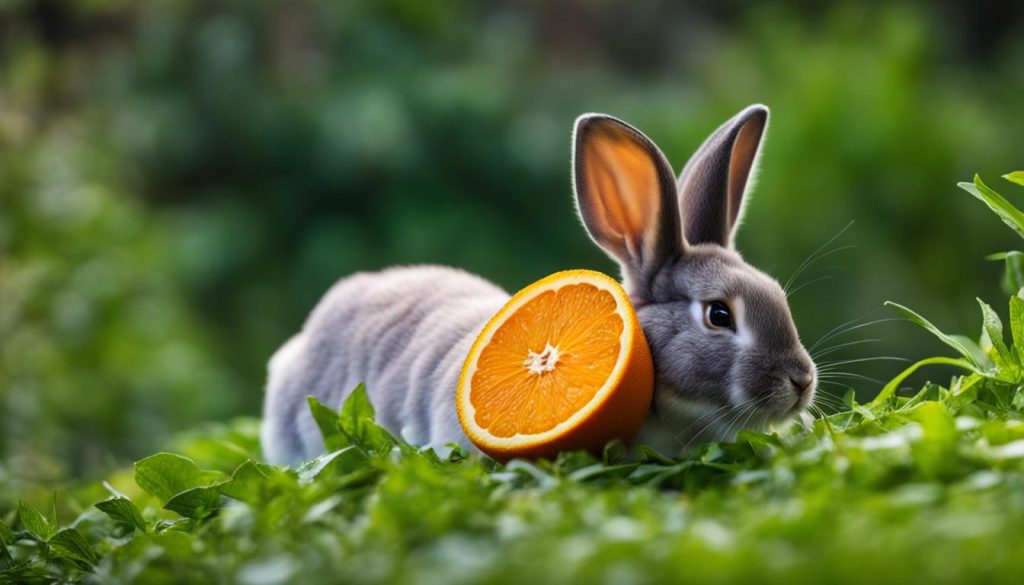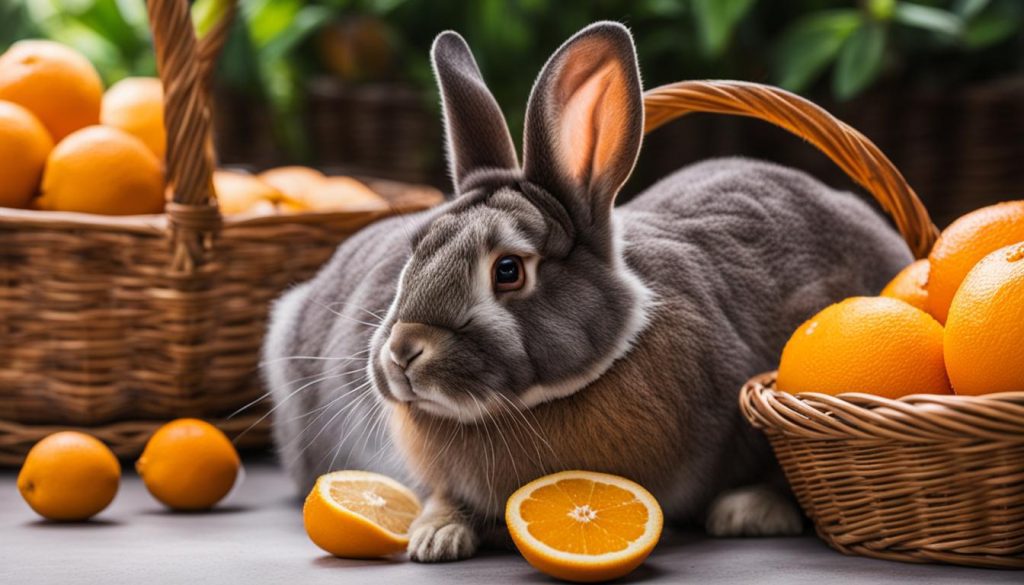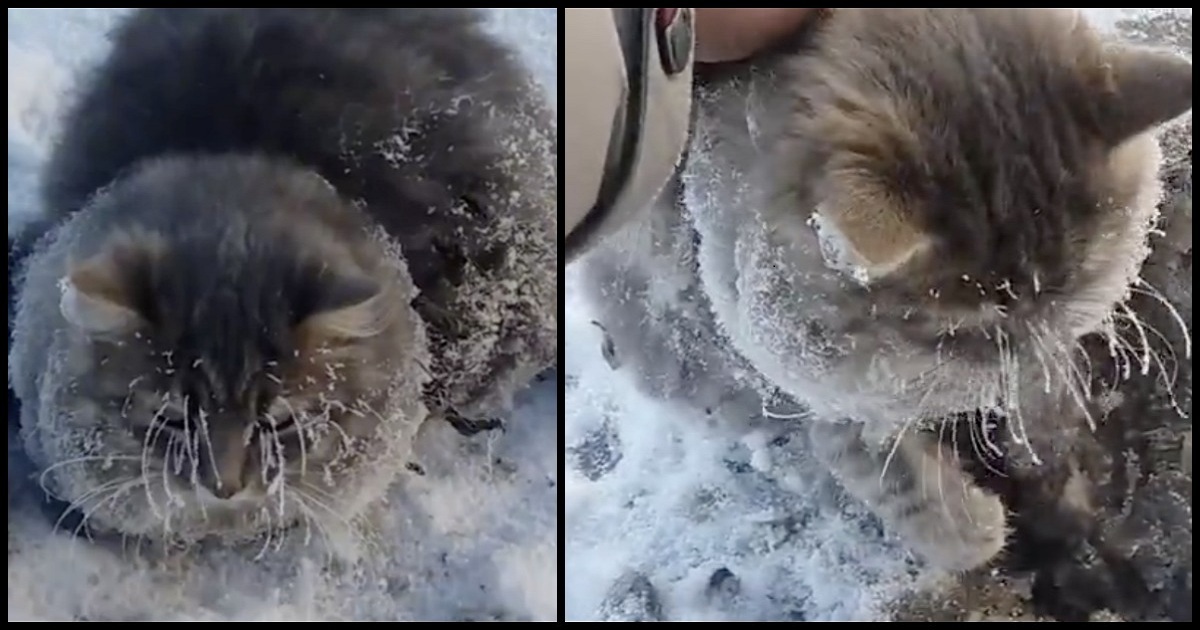As a rabbit owner, you may wonder if oranges are a safe and healthy treat for your furry friend. Let me assure you – rabbits can indeed eat oranges, but there are important factors to consider. The key is moderation.
Oranges offer nutritional benefits to rabbits, including vitamins, minerals, and fiber. However, their high sugar content means that oranges should only be given as an occasional treat. Too much sugar can lead to digestive issues and weight gain in rabbits. To prevent any problems, it’s crucial to introduce oranges gradually and in small amounts.
Prior to feeding oranges to your rabbit, it’s essential to remove the peel and seeds. The peel can be difficult for rabbits to digest, while the seeds may be toxic. By removing these parts, you can make oranges safer for your furry friend to enjoy.
Oranges can be incorporated into your rabbit’s treat rotation or used as a fun foraging activity to provide mental stimulation. However, it’s always best to consult with a veterinarian to ensure that oranges are safe and appropriate for your rabbit’s diet and overall health.
Can Rabbits Eat Oranges? Yes, they can.
- Rabbits can eat oranges, but they should be given in moderation as an occasional treat.
- Oranges offer vitamins, minerals, and fiber, but their high sugar content requires caution.
- Introduce oranges gradually and in small amounts, and always consult with a veterinarian.
- Remove the peel and seeds before feeding oranges to rabbits.
- Consider using oranges as part of a treat rotation or foraging activity for mental stimulation.
Nutritional Value of Oranges for Rabbits
Oranges provide valuable nutrition for rabbits, offering a range of vitamins, minerals, fiber, and antioxidants that can benefit their overall health.
One of the key nutritional benefits of oranges is their high vitamin content. Oranges are a good source of vitamin A, which supports a rabbit’s vision, immune system, and reproductive health. They also contain vitamin C, which plays a vital role in collagen production, immune function, and the absorption of iron.
In addition to vitamins, oranges also contain essential minerals such as calcium, magnesium, and phosphorus. Calcium is important for maintaining strong bones and teeth, while magnesium and phosphorus are necessary for various bodily functions, including muscle and nerve function.
Furthermore, oranges are rich in dietary fiber, which is essential for a healthy digestive system. The fiber in oranges helps regulate a rabbit’s bowel movements and promotes good gut health. It can also aid in preventing obesity by promoting a feeling of fullness and preventing overeating.
Another significant benefit of oranges is their antioxidant content. Antioxidants help protect a rabbit’s cells from damage caused by harmful free radicals. This can help reduce the risk of chronic diseases and promote overall well-being.
While oranges can provide valuable nutrition for rabbits, it’s important to remember that they should not make up a significant portion of their diet. Fresh vegetables such as romaine lettuce, kale, and dandelion greens should be prioritized as healthy snack alternatives. This ensures a well-rounded diet and prevents excessive sugar intake from oranges.
Are Orange Peels Safe For Rabbits?
Orange peels can be safely fed to rabbits in small quantities as an occasional treat. They are rich in vitamins and other essential nutrients that can benefit rabbits. However, it’s important to note that too much orange peel can cause digestive problems and potential choking hazards.
Rabbits can eat orange peels as part of a balanced diet, but they should be free from pesticides and other chemicals.
The vitamin C content and fiber in orange peels can benefit a rabbit’s immune system and digestive health.

When feeding orange peels to rabbits, it’s crucial to ensure that the peels are clean, free from any pesticides or chemicals that could harm the rabbit’s health. The high fiber content in orange peels can aid digestion and promote a healthy gastrointestinal system for rabbits.
Rabbits should be given orange peels as a small part of their diet to prevent any potential risks associated with overconsumption. Monitoring the rabbit’s health and observing any signs of digestive problems is essential.
Feeding Oranges To Your Rabbit
When it comes to feeding oranges to your rabbit, it’s essential to follow a few guidelines to ensure their safety and enjoyment. Here’s how to feed oranges to rabbits while avoiding potential dangers.
Preparing Oranges for Rabbits
To prepare oranges for rabbits, start by removing the peel and white pith. While the peel itself is safe for rabbits to consume, it’s best to remove it as it may contain pesticides or other chemicals. After peeling the orange, wash it thoroughly to remove any residue or dirt. Then, cut the orange into small, bite-sized pieces or slices. This will make it easier for your rabbit to eat and digest.
Portion Size for Feeding Oranges
When it comes to portion size, it’s important to consider your rabbit’s size and dietary needs. Start by offering a small amount of orange to your rabbit and observe their response. If they tolerate it well and show no signs of digestive issues, you can gradually increase the portion size. However, it’s crucial not to overdo it, as oranges are high in sugar. Remember, oranges should only be given as an occasional treat, and the majority of your rabbit’s diet should consist of hay and fresh vegetables.
Dangers of Feeding Whole Oranges
Feeding whole oranges to rabbits is not recommended. Rabbits may have difficulty chewing the whole fruit properly, which can lead to choking hazards or blockages in their digestive system. To prevent such risks, always cut oranges into small, manageable pieces or slices. Additionally, be sure to remove any seeds or stems from the orange before offering it to your rabbit. These parts can be toxic and should be avoided.
Feeding oranges to your rabbit can be a nutritious and enjoyable treat. By following these guidelines on preparing oranges, portion sizes, and avoiding potential dangers, you can safely incorporate this citrus fruit into your rabbit’s diet. Remember to consult with a veterinarian for specific guidance based on your rabbit’s individual needs.
Citrus Fruits You Can Feed Your Rabbit
In addition to oranges, rabbits can also enjoy other citrus fruits such as lemons, grapefruits, and limes. However, it’s crucial to exercise caution when feeding these fruits to rabbits.
lemons for rabbits: While lemons can be given to rabbits as a treat, it’s essential to be aware that lemon seeds are toxic if swallowed. The acidity of lemons can also cause abdominal discomfort, so they should be given sparingly.
grapefruits and limes for rabbits: Grapefruits and limes can be offered to rabbits in slices or wedges, after removing all seeds and rinds. It’s important to remember that these fruits should only be given in small amounts and occasionally, serving as special treats. The majority of a rabbit’s diet should consist of hay and fresh greens.

Rabbits have delicate digestive systems, and the citric acid in citrus fruits can disrupt their delicate balance. Feeding large quantities of citrus fruits can lead to digestive issues such as diarrhea or gas. Therefore, it’s crucial to limit the amount of citrus fruits given to your rabbit and be attentive to any adverse reactions.
It’s always best to introduce any new fruit to your rabbit’s diet gradually, monitoring their response and consulting with a veterinarian if you have any concerns. Remember that a well-balanced diet for rabbits primarily consists of hay and fresh greens.
What Else Can I Feed My Rabbit?
In addition to oranges and other fruits, rabbits can enjoy a variety of other foods as part of their balanced diet. It’s important to provide a diverse selection of foods to ensure they receive the necessary nutrients they need to thrive.
Fruits and Veggies: Apples, bananas, carrots, bell peppers, and cucumbers are all healthy options to incorporate into your rabbit’s diet. These fruits and vegetables provide essential vitamins and minerals that contribute to their overall well-being. Remember to introduce new foods gradually to prevent any digestive issues.
Hay and Grass: Hay and grass form the foundation of a rabbit’s diet. They provide the necessary fiber to support healthy digestion and promote dental health. Make sure to provide fresh, high-quality hay and access to safe grass for your rabbit to munch on.
Commercial Treats: While commercial treats can be a fun addition to your rabbit’s diet, they should not be the main focus. Opt for treats specifically made for rabbits and choose those with natural ingredients and minimal added sugars. Remember to offer treats in moderation to avoid any health issues.
Ideally, a rabbit’s diet should primarily consist of hay and grass, supplemented with fresh fruits, vegetables, and occasional commercial treats. Always consult with a veterinarian to ensure that the diet you provide is appropriate and balanced for your rabbit’s specific needs.
Conclusion
Rabbits can safely enjoy oranges as an occasional treat in their diet. While oranges provide nutritional benefits such as vitamins and fiber, it’s crucial to remember that they should not make up a significant portion of a rabbit’s daily food intake. The high sugar content in oranges can lead to digestive issues and weight gain, so moderation is key.
When feeding oranges to rabbits, it’s important to introduce them gradually and in small amounts. Removing the peel and seeds before offering oranges to rabbits is essential to prevent any potential choking hazards and digestive problems. Monitoring the rabbit’s health and well-being is also crucial to ensure that oranges are suitable for their individual circumstances.
Consulting with a veterinarian is highly recommended to ensure that oranges are safe and appropriate for a rabbit’s diet. They can provide personalized guidance based on the specific needs and health conditions of the rabbit. Remember to prioritize a balanced diet consisting of hay, fresh vegetables, and water, with oranges serving as a tasty occasional treat.
Key Takeaways
Here are the key takeaways about feeding oranges to rabbits:
- Rabbits can eat oranges in moderation as an occasional treat.
- Oranges offer nutritional benefits such as vitamins and fiber.
- High sugar content in oranges means they should not be a significant part of a rabbit’s diet.
- Introduce oranges gradually and remove the peel and seeds before feeding.
- Consult with a veterinarian to ensure oranges are safe for your rabbit.
By following these guidelines and consulting with a professional, you can safely incorporate oranges into your rabbit’s diet and provide them with a variety of tasty and nutritious treats.
FAQ
Can rabbits eat oranges?
Yes, rabbits can eat oranges in moderation as part of their diet.
Are oranges safe for rabbits?
Oranges can be safe for rabbits when given as an occasional treat.
What are the risks of feeding oranges to rabbits?
The high sugar content in oranges can cause digestive issues and weight gain in rabbits.
How should I prepare oranges for rabbits?
It’s important to remove the peel and seeds before feeding oranges to rabbits.
Can rabbits eat orange peels?
Orange peels can be safely fed to rabbits in small quantities as an occasional treat.
What other citrus fruits can rabbits eat?
Rabbits can also eat lemons, grapefruits, and limes in small amounts as occasional treats.
What else can I feed my rabbit?
In addition to oranges and citrus fruits, rabbits can also enjoy apples, bananas, and fresh vegetables.
Is it necessary to consult a veterinarian before feeding oranges to rabbits?
It’s always best to consult with a veterinarian to ensure that oranges are safe and appropriate for your rabbit’s diet and health.






